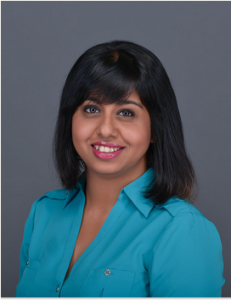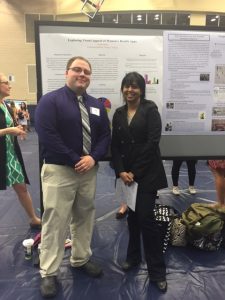
Health apps may be the latest tool women use to manage their health, but the messages women receive about their health through these new tools are hardly new or revolutionary. According to these apps, a healthy woman looks like a Barbie, is fertile, and invests in her health with the dedication of an entrepreneur.
 Dr. Marissa J. Doshi, assistant professor of communication, makes these claims about women’s health apps in a study recently published in Women’s Studies in Communication.
Dr. Marissa J. Doshi, assistant professor of communication, makes these claims about women’s health apps in a study recently published in Women’s Studies in Communication.
“While much of the debate centers on whether or not these apps work well, I was intrigued by another aspect of women’s health apps: how do these apps conceptualize a healthy woman? In other words, what version of health for women is being promoted as achievable and desirable by these apps?” Doshi said.
To answer this question, Doshi along with Communication major, Noah Jurik (’16), created a repository of women’s health apps. Doshi then qualitatively analyzed the descriptions and icons of the apps and identified three idealizations of the healthy woman: Barbie, Earth goddess, and Entrepreneur.
The presence of these archetypes is not necessarily new information—in fact, previous research confirms that women are often encouraged to embody the Barbie and Earth goddess archetypes. Previous research has also critiqued these archetypes for promoting narrow understandings of women’s health by conceptualizing healthy women primarily as white, middle-class, skinny, fertile, heterosexual women. What’s interesting is that even newer technologies (such as apps) perpetuate these traditional ideas about women’s health.
Another interesting aspect is that because women presumably choose to download and use these apps, this mode of delivery uses the rhetoric of choice to implicate women in perpetuating these narrow ideas about women’s health.
Technology offers women new ways for managing their health, but Doshi’s study suggests that we also need to pay attention to the range of health outcomes available to women.

As apps become normalized for health management, the burden of managing health increasingly shifts to patients. This opportunity for increased health management might be perceived as empowering, but this brand of empowerment is accessible to only a small subsection of women—mainly middle-class women who have surplus time, money, and energy to invest in their health
Doshi says that technology has the potential to help women, but for that potential to be realized, we need apps that are better designed and conceptualize health in dramatically expanded terms. Perhaps the results of this study can aid in that process.

